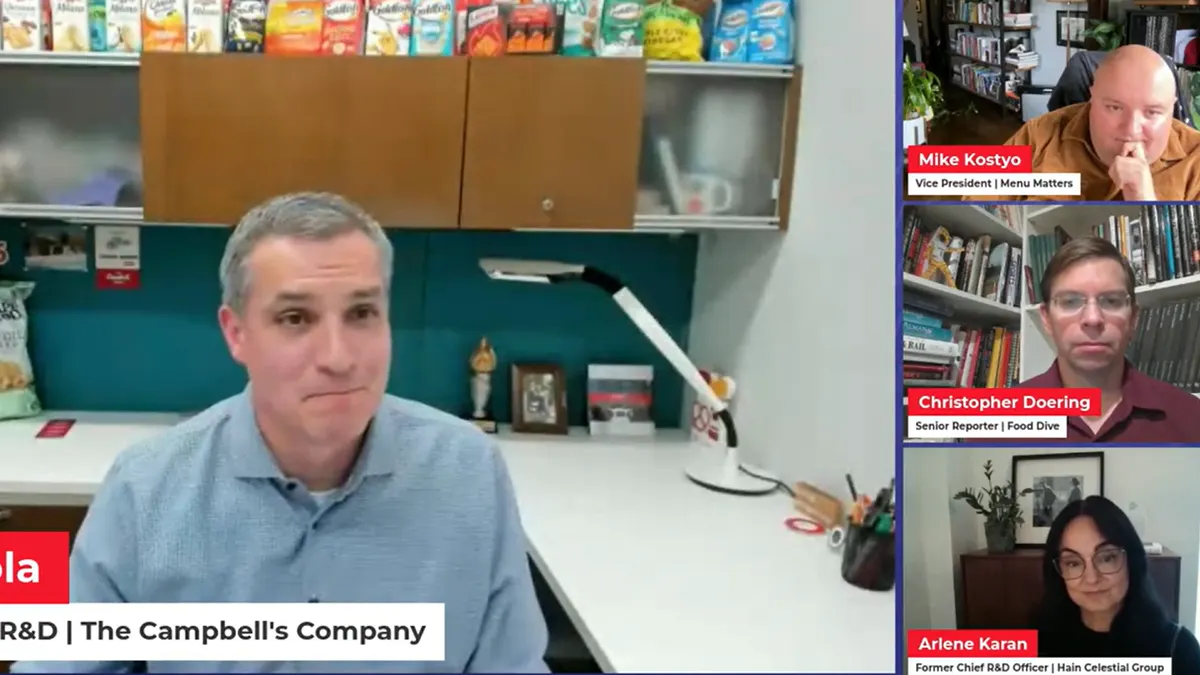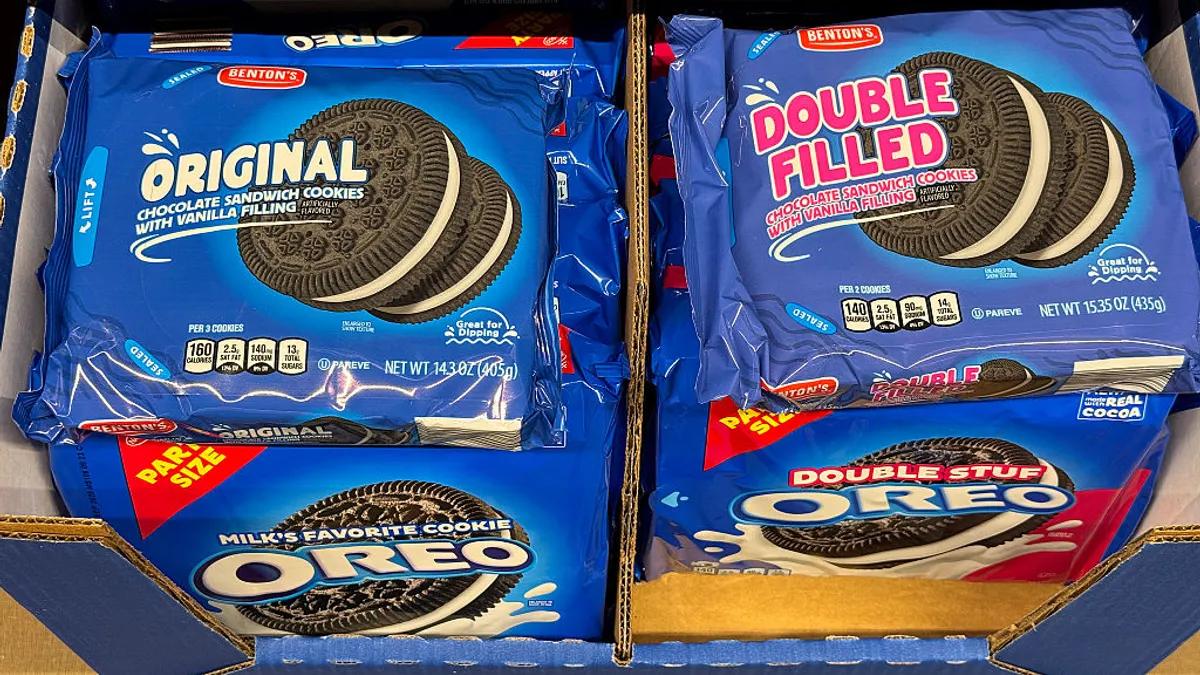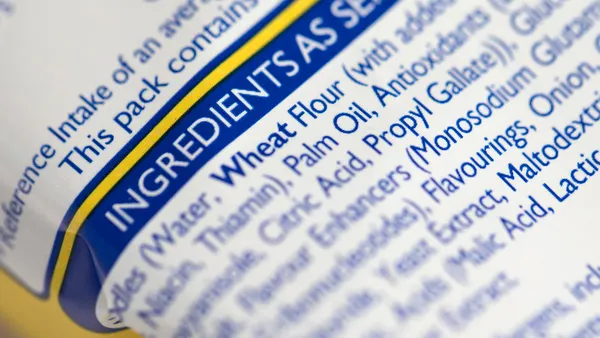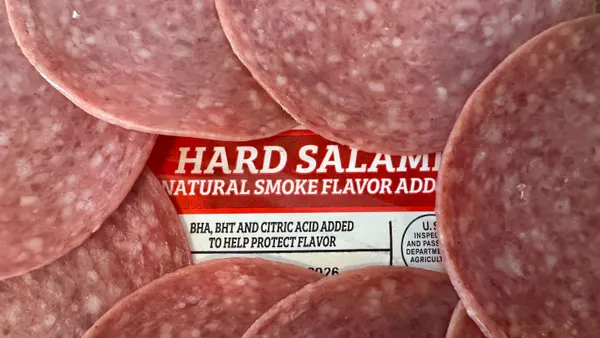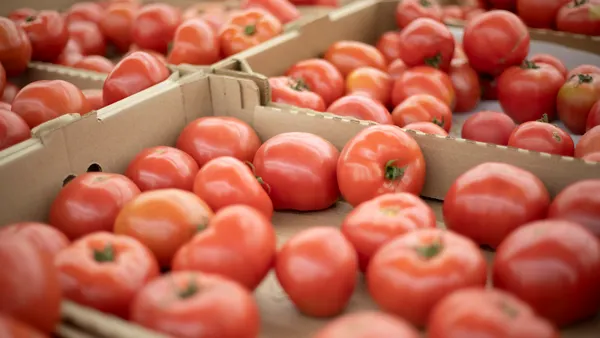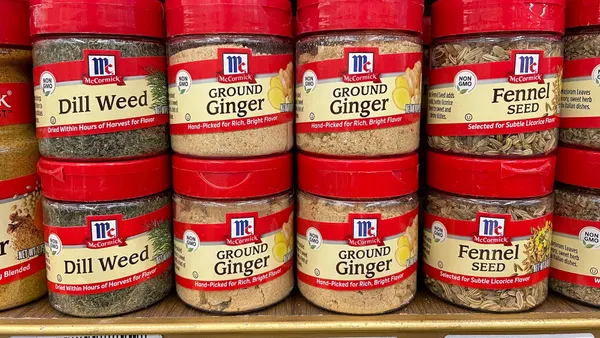Dive Brief:
-
Citing a lack of consensus within the industry for a national research and promotion program for certified organic products, the U.S. Department of Agriculture terminated the proposed rule to establish one. The Organic Trade Association petitioned USDA for the program — called GRO Organic, for Generic Research Promotion Order for Organics — in 2015. It was projected to raise $30 million per year through fees paid by some organic producers.
-
With USDA oversight, OTA would have administered the program and handled research and promotion orders using a system also set up for commodities such as beef, Hass avocados and mangoes. OTA's website indicated support from more than 1,400 growers and others involved in the organic production supply chain. According to The Packer, not many large producers were among them.
-
OTA said USDA's action reflected a pattern of "holding back forward progress" of the $50-billion organic sector. "If there was ever a need for an organic check-off, it is now," Laura Batcha, the group's CEO and executive director, said in a statement. "We are seeing organic dairy and egg sales flattening because of USDA’s failure to move the animal welfare rule forward. Organic research funding is uncertain because it is tied to the unpredictable fate of the Farm Bill. The government also has interfered with the strong role of the National Organic Standards Board. These actions hurt U.S. organic farmers and businesses."
Dive Insight:
USDA received nearly 15,000 comments about the proposed rule and said they revealed a "split within the industry" in terms of support. Because the program would have exempted growers and handlers with gross revenues of less than $250,000, opponents were concerned that a majority of organic farmers would have been shut out, the agency noted. Another concern among the comments received was "whether organic promotion is possible without being disparaging to other agricultural commodities," USDA said.
Considering the number of producers who would have been able to participate, the department may also have been concerned that assessing $30 million from a smaller group of them in order to promote organic products as a whole would have set a bad precedent and been difficult to administer.
When OTA first approached USDA about the organic checkoff idea, the group said a survey showed industry support by a 2-to-1 margin. However, not all organic farmers were in favor. The Wisconsin Farmers Union rejected OTA's plan soon after it was announced for what it called supporting the interests of big food processors over those of farmers.
"Many organic farmers believe that the OTA, funded and controlled by major agribusinesses with investments in organics such as General Mills, Smucker’s, Kellogg’s and WhiteWave, do not represent their views, but instead mainly caters to the needs of the organic processed food and marketing sectors," the group said.
Some farmers oppose mandatory checkoffs, especially since they typically operate on low margins and may not want another expense. In 2016, a group of 755 organic farmer organizations and businesses — called the No Organic Checkoff Coalition — said OTA's plan didn't have as much support as the group claimed and called for voluntary state or regional checkoff programs instead .
USDA administers several checkoff programs to promote specific commodities — including beef, eggs, pork, soybeans and dairy. The programs have been challenged in court by producers who say they're being forced to pay for programs they wouldn't otherwise support. Last year, a federal judge in Montana ruled that the beef checkoff program there was unconstitutional, and an appeals court upheld his decision last month. That program can still go forward, but it now has to operate on voluntarily contributed funds.
OTA intends to continue promoting organics through private-sector initiatives, despite USDA's rule withdrawal. If the industry is as strong as the group claims — OTA said there are more than 26,000 certified organic growers, ranchers, processors, handlers and business owners operating today — it may be able to set up its own voluntary promotional program. The industry might have benefited from the program by having $30 million for additional research, technical assistance and consumer education. However, groups within the sector can still pull their resources together to accomplish some of the same goals without a checkoff program.


